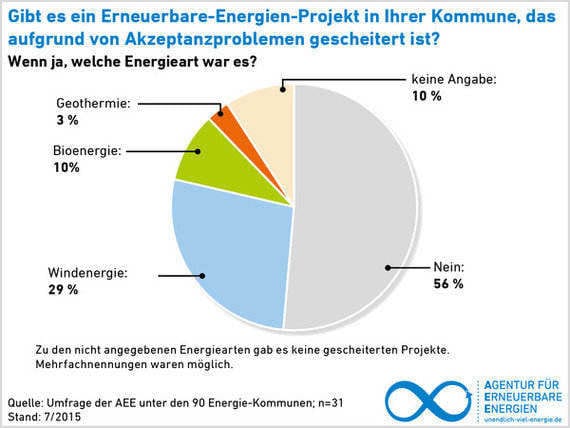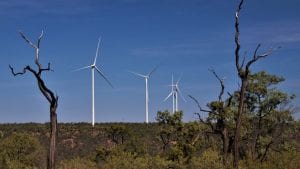German cooperative association DGRV says new registrations of energy cooperatives fell by 60 percent in 2014. The organization says amendments to the Renewable Energy Act (EEG) from 2014 are the reason, but there was another as well.
At a press conference held today, the DGRV and German renewable energy organization AEE say that only 54 new energy cooperatives were founded last year after 129 in 2013, a decrease of 60 percent. On the one hand, changes to the EEG make themselves felt. Specifically, the DGRV says that auctions hamper citizen cooperatives and favor bigger planning firms and investors.
Another reason was the discussion about new regulation costs for financing to protect investors. These new regulations were designed, however, mainly with the conventional banking sector in mind, not energy cooperatives, where everyone generally knows each other and is committed to the project for the long term. This year, energy cooperatives were exempted from these new regulations, so this burden at least should not affect the sector going forward.
The AEE has produced a number of graphics (in German) on its website for the press conference. 94 percent of the 90 energy communities surveyed said that public acceptance is very important or extremely important for the Energiewende. Another graphic shows that participation in ongoing operations – rather than just a financial stake upfront – is crucial for local acceptance. The graphic below shows that most of the projects that fail due to public resistance are wind farms (29 percent), followed by bioenergy (10 percent) and geothermal (three percent). Geothermal has faced greater opposition in recent years because of numerous problems, especially in southwest Germany. 56 percent of those surveyed said, however, that no project had been blocked.
Source: Renewables International. Reproduced with permission.








